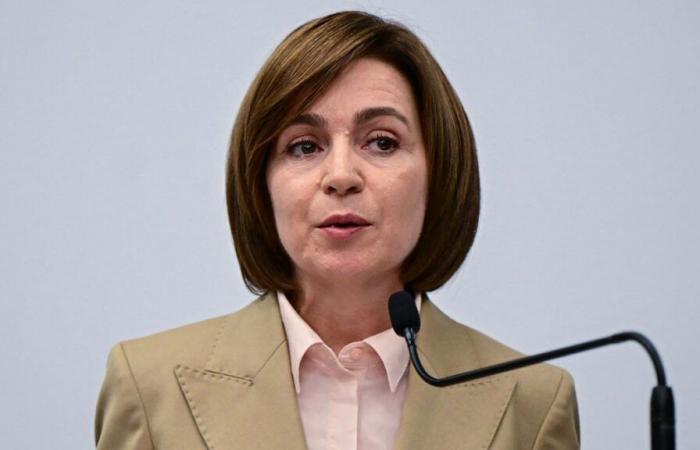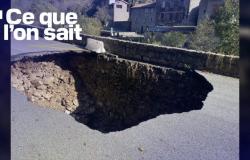
At the same time, the 52-year-old candidate came first in the first round of the presidential election with nearly 42% of the votes. On November 3, she will face Alexandr Stoianoglo, a 57-year-old former prosecutor supported by the pro-Russian socialists, who did better than expected with some 26% of the vote.
Difficult second round ahead
Maia Sandu, who turned her back on Moscow after the invasion of neighboring Ukraine and brought her country’s candidacy to Brussels, had called this referendum to validate her strategy. And determine the “destiny” of this former Soviet republic of 2.6 million inhabitants.
But his bet backfired.
Because even if the “yes” ultimately narrowly wins, this result, without calling into question the accession negotiations with the Twenty-Seven, “weakens in some way the pro-European image of the population and the leadership of Maia Sandu”, comments French political scientist Florent Parmentier, a specialist in the region, for AFP.
The first woman to occupy the highest positions in 2020, this former World Bank economist with a reputation for incorruptibility has become a leading European personality in four years.
In a complicated geopolitical environment, with Ukraine at war and Georgia accused of pro-Russian authoritarian drift, Moldova gave Brussels something to hope for, underlines the expert.
However, after this setback, a victory for Ms. Sandu in the second round is far from assured.
Mr. Stoianoglo can count on the vote reserves of many small candidates “and the terrible trap of + All against Sandu +” risks closing on her, according to the analyst.
During the campaign, this stern-looking man called for “restoring justice” in the face of a power ready, according to the opposition, to violate rights and pleaded for a “balanced” foreign policy, from the EU to Russia.
Corruption and disinformation
Throughout the day, Moldovans responded, including those from the separatist region of Transdniestria, which hosts a garrison of Russian soldiers.
“I came to give my voice for the prosperity, peace and well-being of our country,” said Olga Cernega, a 60-year-old economist, interviewed by AFP in Chisinau.
Others, like this sixty-year-old jurist who only wanted to give his first name, Ghenadie, were worried about the “Western” turn of the
Moldova, of a loss of identity and judge that the current government “has made the situation worse”, while part of the population has been impoverished by record inflation.
Between corruption and disinformation operations, the police have carried out 350 searches in recent months and carried out hundreds of arrests of suspects accused of wanting to disrupt the electoral process on behalf of Moscow.
A massive vote-buying scheme has been revealed, targeting up to a quarter of voters expected at the polls in the country of 2.6 million people.
According to the WatchDog think tank, Russia spent around a hundred million dollars to influence the vote.
With, in the maneuver, the oligarch Ilan Shor, refugee in Moscow after a conviction for fraud. On social networks, he joked about the “rout” of Maia Sandu and her “lamentable failure”.





